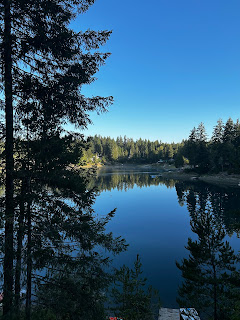Connecting with Your Inner Self: Embracing Meditation in Retirement
Connecting with Your Inner Self: Embracing Meditation in Retirement
Retirement is more than a simple departure from the workforce—it’s a profound shift, a new chapter filled with possibilities and challenges alike. This time in life often brings about reflection, an opportunity to revisit old dreams, and a chance to forge new paths. Yet, with these opportunities comes the question: How do you stay grounded and purposeful amidst such significant change? The answer might lie in an ancient practice: meditation.

Meditation as a Path to Self-Discovery
As you step into this new phase, the quiet moments of retirement can prompt deeper questions about life and purpose. Meditation offers a gentle way to explore these questions, providing a space to connect with your inner self. Unlike the busyness of your earlier years, this period allows you the time to sit with your thoughts, to reflect on where you’ve been, and to consider where you’re going. Meditation becomes not just a practice but a companion in this journey of self-discovery.
By dedicating time to meditation, you allow yourself to reconnect with parts of your identity that may have been overshadowed by the demands of a career and family life. It’s a way to find clarity and peace, to listen to the still, small voice within that knows your deepest desires and fears. Through this inner exploration, you can uncover new passions or rediscover old ones, all while cultivating a sense of purpose that aligns with this chapter of your life.
Cultivating Connection Through Community Meditation
While meditation is often viewed as a solitary practice, it also has the potential to foster deep connections with others, which can be particularly valuable in retirement. This phase of life often comes with shifts in social circles—friends move away, family members have their own busy lives, and the routine interactions of a work environment are no longer present. In this context, the sense of isolation can sometimes creep in, making it all the more important to seek out new ways to connect.
Engaging in community meditation, whether through local groups, online classes, or retreats, can be a powerful way to meet like-minded individuals who share your interest in mindfulness. These communities offer more than just the opportunity to meditate together; they create spaces where you can share experiences, exchange ideas, and support one another on the journey of self-discovery.
Being part of a meditation community can also enhance your practice by introducing you to new techniques and perspectives. The collective energy of group meditation often deepens the experience, making it easier to stay present and focused. Moreover, hearing the stories and insights of others can provide comfort and inspiration, reinforcing the understanding that you are not alone in navigating the challenges and opportunities of retirement.
For those who prefer solitude, even occasional participation in group meditation or attending a retreat can bring a renewed sense of connection, both to others and to the broader human experience. This balance between personal introspection and communal interaction can enrich your meditation practice, making it a cornerstone of not just your retirement, but your entire approach to life.
The Gentle Power of Meditation
Meditation isn’t about forcing yourself into stillness or emptying your mind. Instead, it’s about learning to be with yourself as you are, with all your thoughts, feelings, and experiences. This practice is especially powerful during retirement when life’s pace changes and you may find yourself grappling with a new kind of quiet—one that can feel both liberating and unsettling.
In these moments, meditation serves as a balm, easing the transition by helping you stay connected to your inner world. It’s in this stillness that you might find answers to questions you didn’t know you had, or simply a sense of peace that comes from being fully present in the moment. Through meditation, the uncertainty that often accompanies retirement can transform into an opportunity for growth and inner peace.
Integrating Meditation into Your Daily Life
Meditation doesn’t require you to sit cross-legged on the floor for hours at a time. In fact, it can be as simple as sitting comfortably in your favorite chair, closing your eyes, and focusing on your breath. This simplicity is what makes meditation accessible and profoundly effective.
You might start your day with a few minutes of mindful breathing, setting a peaceful tone that carries you through whatever the day brings. Or perhaps, in the evening, you find solace in a body scan meditation, gently guiding your attention from your toes to your head, releasing tension and unwinding from the day. These moments of meditation can become cherished rituals, grounding you in the present and providing a sense of continuity amidst the changes retirement brings.
Finding Fulfillment Through Mindfulness
At its core, meditation is about more than relaxation—it’s about living mindfully. Retirement offers a unique opportunity to live with intention, to engage with each day fully. Through meditation, you can cultivate this mindfulness, finding fulfillment not in the busyness of life, but in the depth of each moment.
As you embrace meditation, you may discover that it’s not just a practice, but a way of being. It invites you to approach life with curiosity and compassion, to be gentle with yourself as you navigate this new chapter. And in doing so, you may find that the peace and purpose you seek are not somewhere out there, but within you, waiting to be uncovered.
Meditation in retirement isn’t about achieving perfection or enlightenment; it’s about finding your own path to inner peace, one breath at a time. It’s about connecting with your inner self, not just to understand where you’ve been, but to embrace where you are and where you’re going. And in that connection, you might just find that retirement is not an end, but a new beginning, filled with the richness of self-discovery and the quiet joy of simply being.





